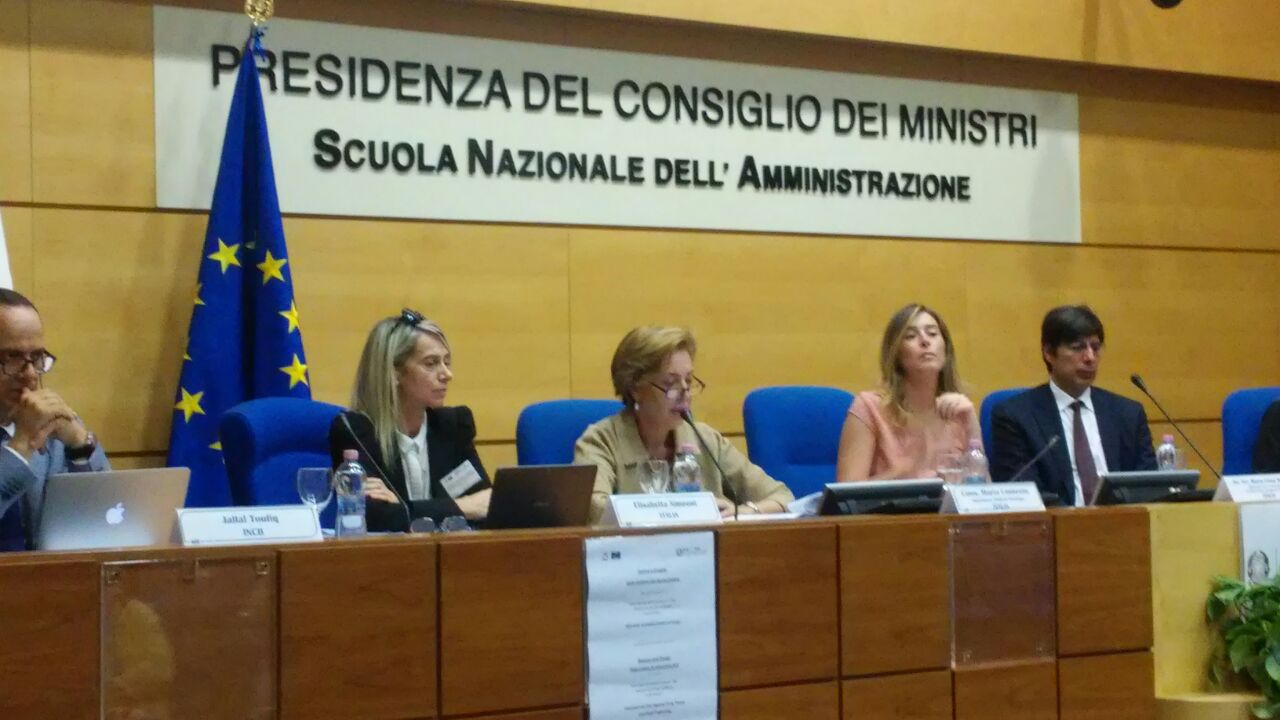“Women and Drugs: From Policy to Good Practice”, a seminar organized in Rome, in June 2017

Highlighting good practices and identifying the problems faced by women suffering from addiction disorders was the key objective of the seminar organized on 26 and 27 June in Rome to mark the International Day Against Drug Abuse and Illicit Trafficking. The event was co-organized by the Italian Department for Anti-Drug Policies and the Pompidou Group of the Council of Europe and was held at the National School of Administration in Rome. The seminar was attended by representatives of 25 EU and MedNET countries as well as delegates from EMCDDA, UNODC, UNICRI and INCB.
The proceedings were opened by the Undersecretary of State to the Presidency of the Council of Ministers, Maria Elena Boschi, who called attention to the worrying increase of synthetic drugs on the market, and the importance of reinforcing prevention activities providing accurate information about the devastating effects of drugs, especially on young people.

The next speaker was Councillor Maria Contento, Head of the Department for Anti-Drug Policies, who emphasised the importance of proposing diversified measures in all aspects of drug demand reduction, from prevention, to treatment and social recovery.
From the speeches and the presentations given by the the various countries and institutions, an overall theme emerged: there are growing numbers of women incarcerated for drug-related violations, and treatment systems in place are mostly shaped around male users, whereas women’s cerebral system and needs are different to those of men.
Abuse against women was also discussed. Sexual violence is often associated with the use of synthetic drugs, such as GHB and alcohol. It is perpetrated mainly by family and friends, although the phenomenon is also on the rise in nightclubs, at festivals and concerts.
As stated in our Network Manifesto, Dianova takes gender equality very seriously. This commitment is reflected in our treatment models, which are tailored to people’s needs and support the use of mixed residential facilities. We also cater to women in particular through therapy groups which, by sharing and internalising women’s experiences as well as exploring relational styles, aim to analyse the problems that are specific to substance abuse in women.
In conclusion, this seminar was a very useful platform for sharing international gender-oriented strategies to counter drug addiction.

